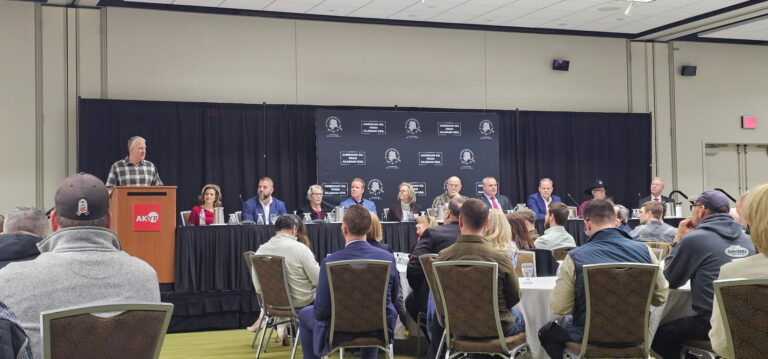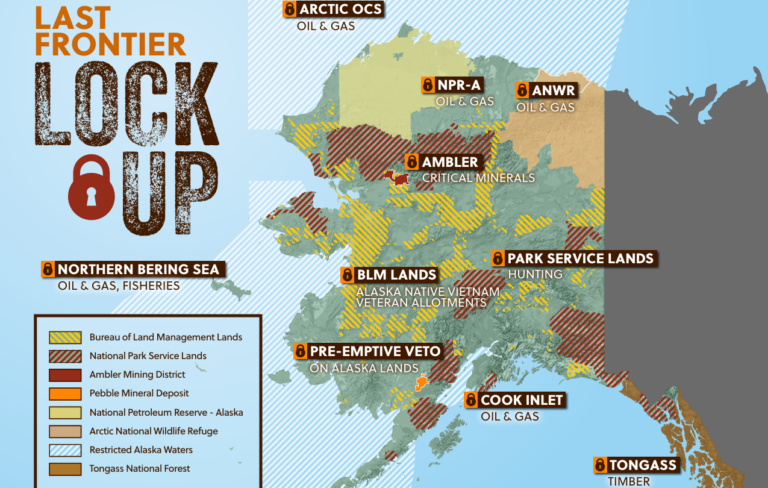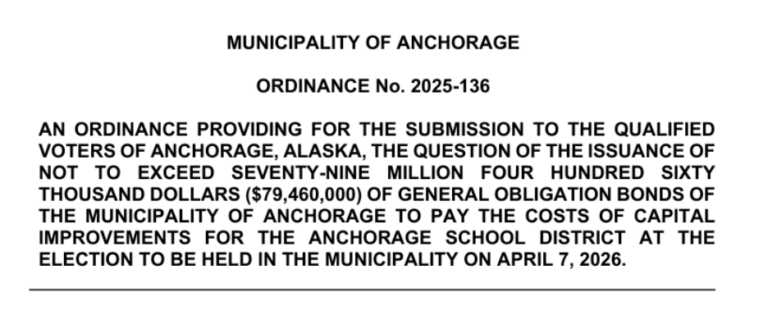Last Saturday, Jan 10, the Alaska Young Republicans hosted their State Convention featuring a panel of ten of the twelve Republican gubernatorial candidates for this year’s election: Bernadette Wilson, Adam Crum, Edna DeVries, Matt Heilala, Shelley Hughes, Click Bishop, Treg Taylor, Dave Bronson, James Parkin IV, and Bruce Walden. Candidates for Governor Nancy Dahlstrom and Hank Henry Kroll did not participate in the event.
Questions #5-6: Going Beyond Popular Consensus
Questions 5 and 6 were addressed to all ten candidates: “What is something you support that is not popular?” and “Where do Republicans disagree, and it is healthy disagreement?”
Click Bishop highlighted the Permanent Fund and the size of the dividend as a point of contention.
Bruce Walden said an unpopular solution he supports is extending the railway system to transport gas instead of continuing to pursue the LNG pipeline project. Then, he started speaking in Korean, the second language he had learned while serving as a Green Beret. He claimed he could get South Korea to pay for the rail.
James Parkin IV proposed creating an Alaskan-owned corporation that can develop Alaska’s resources on its own. He said it would be the “trump card” for negotiations. If others will not cut Alaska a fair deal, then Alaska will develop its own resources. “I would create that corporation owned by Alaskans,” he stated.
Dave Bronson claimed trawl bycatch is an unpopular issue he would focus on if he is elected.
Treg Taylor talked about needing a governor who is willing to make hard, unpopular decisions without strategizing for reelection. “The next governor needs to be willing to be a one term governor,” he stated.
Shelley Hughes called out Bronson, saying trawl bycatch is a very popular issue for Alaskans, and she has a plan to solve it. Hughes’ campaign website lays out a 3-pronged plan to stop trawl bycatch. Then, she pivoted to the topic of education. Hughes claimed schools are receiving enough funding, but they are not using that funding wisely. “The NEA should not be controlling education policy,” she stated.
Matt Heilala said the Republican Party and the government as a whole “need a severe version of transparency.”
Edna DeVries seconded Heilala’s call for transparency in the government and in the Republican Party. She also emphasized the need to achieve transparency through respectful means. She stated that she made a public pledge to not speak ill of any of the other Republican candidates in the race. Asking her fellow Republicans to take it a step further, she challenged all Republicans to stop the infighting and treat each other with respect.
Adam Crum highlighted the high costs of healthcare in Alaska which contribute to hidden costs for businesses. “A healthcare sector growing without GDP growing is a symptom of a very sick system,” he stated.
Bernadette Wilson said, “It is time to tell the feds to stick it.” Pointing to an example of her “Uncle Wally” (Former Governor Walter J. Hickel), who proceeded with a project without the required federal permitting, Wilson argued Alaskans should start getting things done without waiting for federal permission. She also insisted that failing Republican leadership should be called out.
Prior Coverage
In case you missed it…
Read MRAK’s coverage of Begich’s and Sullivan’s speeches and introductions from the 10 gubernatorial candidates: Alaska Young Republican State Convention Part I: Who Are the 2026 Gubernatorial Candidates?
Hear from Hughes, Crum, Taylor, and Wilson: AKYR State Convention Part II: What Is the Biggest Challenge Alaska Faces in the Next 5 Years?
Hear from Bishop, Walden, Bronson, and Heilala: AKYR State Convention Part III: What Is Current Leadership Getting Right and Where Is It Falling Short?
Hear from DeVries and Parkin: AKYR State Convention Part IV: What Issues Do We Face That We Aren’t Talking About Enough?
Next in Series
Part VI features the candidates’ answers to audience questions.





